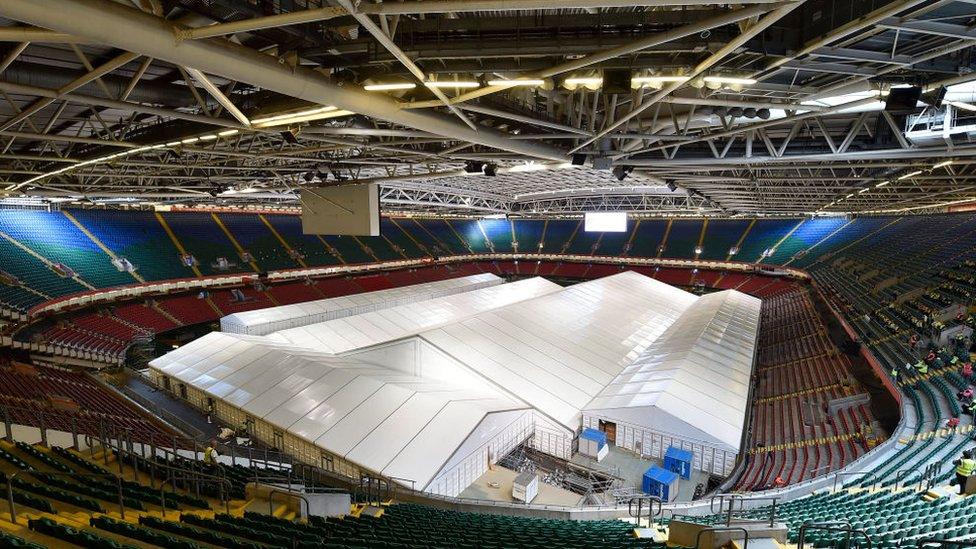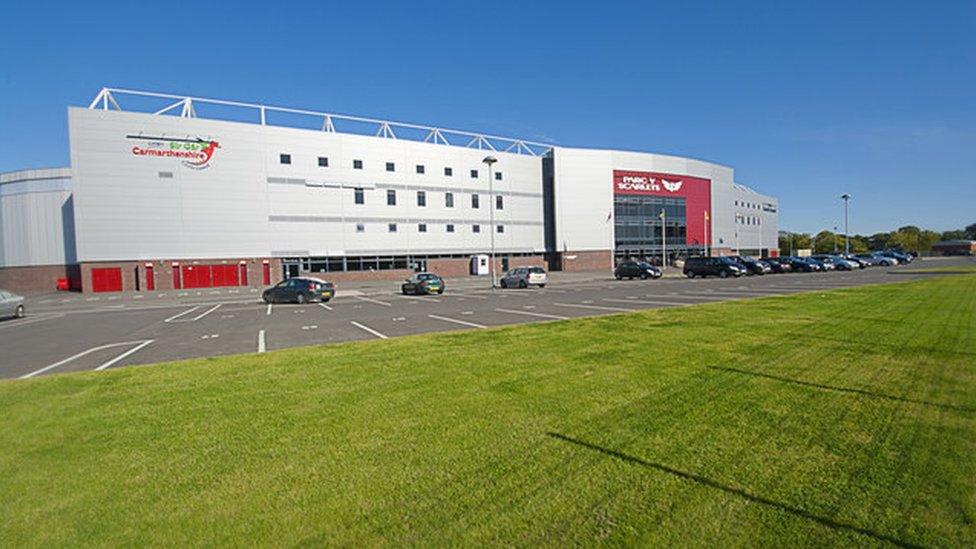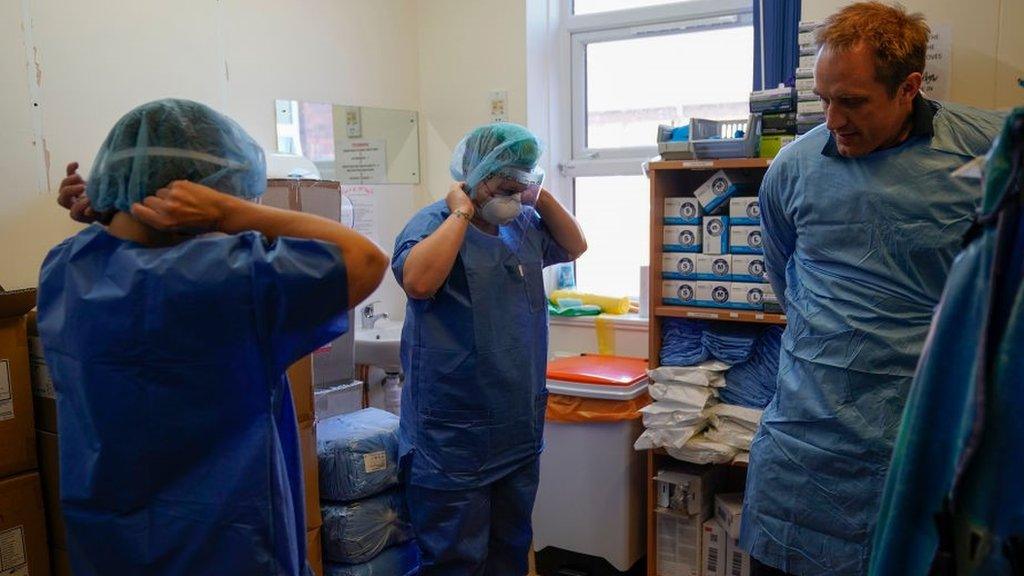Covid: Wales' field hospitals cut from 19 to 10
- Published

The Dragon Heart field hospital is being replaced under the plans
The number of Wales' field hospitals will be cut from 19 to 10.
Sites to be retained include Parc y Scarlets in Llanelli, Bay Studios in Swansea and Venue Cymru in Llandudno.
Health Minister Vaughan Gething was giving details of where extra bed capacity for the winter months will be based.
The field hospitals will provide an additional 2,600 beds, with another 2,500 at NHS sites including a new building in Cardiff.
The figures were previously outlined in the Winter NHS Wales plan, and aim to tackle a worst case scenario caused by a spike in emergency hospital admissions.
In the spring, 19 field hospitals were established, and provision was made for 10,000 beds.
"Thankfully, the great majority of the additional beds were not needed at that time," Mr Gething said in a statement to Members of the Senedd (MSs).
The ten field hospitals retained will be "capable of providing approximately 2,600 additional beds", he said.
There will be another 2,500 beds in a combination of existing NHS hospital facilities, the opening of the new Grange University Hospital near Cwmbran, and a new modular facility at Cardiff's University Hospital of Wales.
The latter £33m facility replaces the Dragon's Heart Hospital in Cardiff's Principality Stadium, which was the only field hospital in Wales to treat patients.

A field hospital will be retained at Parc y Scarlets
The field hospitals are:
Venue Cymru in Llandudno
Ysbyty Enfys Deeside
Brailsford Centre at Bangor University
Harman Becker unit at the Bridgend Industrial Estate
Y Barn at Parc y Scarlets, Llanelli
Selwyn Samuel Centre in Llanelli
Bluestone in Pembrokeshire
Aberystwyth leisure centre
Cardigan leisure centre
Bay Studios in Swansea
Mr Gething said the additional capacity was intended to let health boards continue to carry out planned surgical procedures and manage demand for emergency care during the "historically challenging winter period", as well as managing any increase in coronavirus patients.
- Published21 May 2020

- Published15 September 2020
